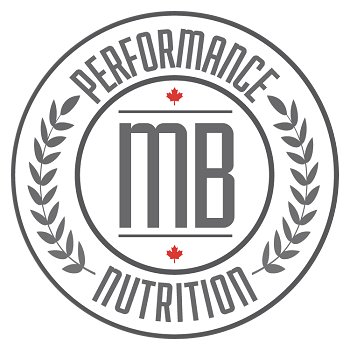Last updated on January 8th, 2025
I know you’re curious about how the elite and professional OCR athletes eat, train and live. The Athlete Nutrition Profile I did on Ryan Atkins was very popular, so I wanted to continue this series and start interviewing more athletes on their nutrition and lifestyle habits.
Rea Kolbl
Rea Kolbl had a break-out year in her first full season in 2017, winning World’s Toughest Mudder, and taking first in Spartan’s World Elite Point Series. She is on the Spartan Pro Team and is sponsored by Ascent Protein, Brave Soldier, and EndurElite.
Her 2017 highlights include:
- World’s Toughest Mudder Champion
- Spartan World Championship 5th Place
- Spartan World Elite Points Series Champion
- Spartan U.S. Elite Points Series Champion
- Obstacle Course Racing World Championships Team Champion
- Spartan NBC U.S. Championship Series – West Virginia 1st Place
- Tougher Mudder World Championship 2nd Place
- Tougher Mudder East Series 2nd Place
- Spartan NBC U.S. Championship Series 2nd Place
- Spartan NBC U.S. Championship Series – Asheville, NC 2nd Place
- Spartan NBC U.S. Championship Series – Palmerton, PA 2nd Place
Her 2018 highlights so far include:
- Spartan U.S. National Series, Chicago – 5th Place
- Toughest Mudder North American Series, Michigan – 1st Place
- Spartan Sprint Elite, Big Bear Lake, CA – 1st Place
- Spartan U.S. National Series Beast, Big Bear Lake, CA – 1st Place
- Spartan Sprint Elite, San Jose, CA – 1st Place
- Spartan U.S. National Series, San Jose, CA – 1st Place
- Toughest Mudder North American Series, Austin, TX – 1st Place
Growing up in Slovenia, she competed on the National Gymnastics Team. Rea Kolbl now lives in Boulder, Colorado.
Rea Kolbl Nutrition Profile
Have you worked with a nutritionist for athletic performance? Why or why not?
I have not. Over the course of my athletic career I think I figured out pretty well what works for me. I was on a really strict diet growing up as a gymnast, then battled with quite a few eating disorders when my career ended. I’m the kind of person who takes things to extremes, so working with a nutritionist would bring too much structure into my eating, which I would then try to optimize likely to unhealthy levels. So for me, it’s better to not know exactly how many calories, macros, etc. I consume. I tend to follow the rule of eating healthy, avoiding processed food and desserts, but allowing myself to eat as much as my body needs to feel full and refueled – running 90+ miles a week in addition to daily workouts, this usually means a lot.
Where do you get most of your nutrition information from?
I trust my husband with that. He’s really good at cooking and enjoys it, and we buy all of our ingredients fresh so he makes dinner from scratch every night. We try to eat balanced, but don’t really count macros or calories. In addition to eating healthy, I also test pretty often with InsideTracker for my biomarker levels. With the amount of activity I do, it’s sometimes hard to tell if I eat enough, and I like to check periodically to catch deficiencies before they become a problem. I learned a lot from their blog about efficiently supplementing whatever I’ve been lacking in real food.
When did you realize nutrition is an important piece to your racing performance?
Growing up as a gymnast I always knew it was important. We had to be strong but also light, so I’ve been paying attention to what I was eating since I was just a little girl. But it’s one thing to know that you need to eat healthy, and another to really experience what happens if you don’t. I didn’t eat sweets during my gymnastics years, and I made it my life mission to make up for it after I quit, and I went from roughly 100 lbs to 160lbs, none of which was muscle. I felt horrible – I had no energy, sports were no longer fun, and I wasn’t able to run a mile. That was when I realized that nutrition is not only important for racing, but for the quality of life in general.
Was it difficult to transition from your previous diet / lifestyle to the sports diet / lifestyle you have now?
Yes, and it took a long time and a lot of help. It also made me realize how important access to healthy food is. I tried to eat healthy when I moved to United States for college, but without a car and with access to stores like Walmart and Safeway only, produce was just too expensive and carrying a chocolate home on a bicycle is a lot easier than carrying a watermelon. Once I started living with my husband (then boyfriend), I was finally able to shop for fruit again, which has always been my dessert of choice. That solved most of my problems, as once I stopped eating sweets I also stopped craving sugar. Once we started cooking our own meals I realized that veggies can be made pretty delicious, and the rest fell into place. It took me over 4 years to lose all the weight I gained in a couple of months. But I think knowing just how bad I felt during that time is a valuable experience that will make healthy food choices easy for the rest of my life.
How much water do you drink on a daily basis?
I actually get most of my water from other sources. I drink about 20 oz of milk with breakfast, then another 20 oz with coffee. I rarely drink anything during exercise, but I love FitAid after my runs, and in the afternoon I usually drink water with Nuun tablets for electrolytes, although the amount varies depending on how much I do and how hot it is outside. I get a lot of water also with fruit – sometimes I finish a whole watermelon after dinner, which is probably a lot of liquids, based on numerous bathroom visits at night. I don’t really track my water intake – just drink when I’m thirsty, and eat lots of fruits and veggies.
What do you eat on a typical (non-competition or long training day) day?
I don’t really plan my nutrition based on the type of training I do – on hard days, I’m usually more hungry, so I’d eat more. I never restrict intake either, as my body is pretty good at telling me what it needs and how much is enough.
I always start my day with my EndurElite preworkout, but other than that I usually run in the morning on an empty stomach. If I know that the run will be particularly hard or long, or if I wake up hungry, I’d have a banana. After my morning run I always have Ascent Whey protein
and a bowl of cereal with full-fat milk. I tend to avoid sugary kinds, and anything with vegetable oil or high fructose corn syrup. After that I have my morning cup of coffee. During the day I snack on fruits and nuts, but since I’m really active all day long I avoid heavy meals. I’m not really hungry during the day either, so it’s never a problem to just go all day long on snacks. After my second workout in the afternoon I have dinner, which is always prepared at home from scratch by my husband. It varies from day to day, but always involves a lot of veggies (usually sautéed or baked), some sort of meat (I try to eat red meat at least twice a week) or fish, and starch – I really like wild rice, and we often have baked potatoes as well.For dessert I have a lot of fruits, whatever is in season. Watermelon is probably my favorite, but I love any kind of fruit. I pretty much eat until I’m full, and rarely track how much that actually amounts to. Before bed, I always have a scoop of Ascent Micellar Casein Protein
, which helps muscle recovery during sleep.What vitamins or minerals do you take?
Iron, magnesium, fish oil
What sports supplement do you take and when (pre-workout, intra-workout, post-workout)?
PerformElite preworkout (made by EndurElite) 30 minutes to an hour before my morning run, Ascent Whey protein
Do you change your nutrition strategies to reflect the phase of training you’re in? (Prep phase vs. Build phase vs. Taper phase vs. Transition phase)
I don’t really have training phases. During winter when there are fewer races, I do more long, fun trail runs, and focus less on workouts. Rather I spend more time outside hiking, biking, walking, and just doing things I enjoy rather than going to the gym. But other than that, I train roughly the same year round, and my nutrition is also pretty constant throughout. My body is pretty good at telling me how much it needs, and I just listen.
What is your fluid and nutrition strategy before, during and after exercise?
I always have my preworkout supplement before my morning run, but other than that I don’t have anything planned before. Snack, if I’m hungry (usually a banana, or some nuts before my afternoon workout). I don’t eat or drink during exercise, but I make sure to replenish after.
If you know, what is your current body fat percentage? Do you have a body fat percentage goal for race season?
I do know this – a couple of months ago I did metabolic testing thanks to Ascent Protein at CU Boulder, where they measured my lactic threshold, what kind of fuel I burn at each running pace/heart race zone, and a full body composition. Turns out my percentage is 10%, which I think is probably exactly where I’d want to be. But I don’t really have a number I strive for, nor a particular weight (I never weigh myself). It’s just a consequence of running a lot, training a lot, and eating healthy.
How many hours of sleep do you get every night? What time do you go to bed and wake up?
I sleep a lot! It’s one of the perks of being a full time athlete, I can let my body get as much rest as it needs. I think it’s one of the main reasons I’ve been relatively injury free this season, despite the heavy training load. I usually go to bed around 10 to 11pm, and how early I wake up depends on how hard my training was the day before. I usually get 9 – 10 hours of sleep, but after hard days or races it can be up to 12 hours. I rarely go below 9, unless there is something scheduled in the morning.
How do you recover your body and mind from the demands of your life and your training?
I love training (running especially) so much that I don’t really need my mind to recover. And I listen to my body when I train, so I’ve never really had any problems with overtraining either. But I do a lot to make sure my body is always ready. I go to chiropractor at least twice a month, or more if I’m racing a lot. I go to cryotherapy at the end of every day. I roll a lot and go to sauna often. I eat a lot and supplement things I can’t get enough with just food, and I sleep a lot. I also do a lot of low impact activity, such as hiking, biking, and walking around between my workouts, which I find helps with recovery too, and it keeps a wide range of muscles active and strong so I can run and train with good form.
How often do you eat fast food?
Never. I think my husband misses it a bit, so whenever we travel to races he pre-cooks dinners for me and I take them with me in a sandwich bag, so once we arrive he can have his burgers and fries while I munch on my rice and veggies, or whatever else portable he prepares.
What processed foods do you eat?
Cereal for breakfast. But I avoid overly sugary ones, and check labels to make sure they don’t contain high fructose corn syrup and vegetable oils, and that they’re mostly whole wheat.
Are there any foods you dislike but eat anyway because they’re healthy?
Not really. I think after eating healthy for so many years, even things I used to dislike became really delicious (avocados are definitely on this list). But I think there’s a way to prepare any food to make it delicious.
Are there any foods you avoid whenever possible (such as gluten, sugar, meat etc.)? Why?
I avoid all processed foods except cereal, and for that I try to choose the ones with the least number of ingredients and avoid brands with vegetable oil and high fructose corn syrup. I try to avoid these last two as much as possible. Vegetable oil especially, since it’s full of trans fats which are just really bad for your body. I also try to avoid sugar, and when cooking my husband usually uses agave nectar or honey for recipes that call for a sweetener.
What is your fluid and nutrition strategy for a Spartan Sprint?
Since sprint is much shorter than any of my training runs, I usually just eat a banana about an hour before and EndurElite preworkout about 45 minutes before the race. I don’t eat or drink anything during the race.
What is your fluid and nutrition strategy for a Spartan Super?
I would have a banana soon after I wake up (around 6am), then if I feel hungry I’d have a granola bar (I like those Nature Valley ones with honey) about an hour before, and EndurElite preworkout 45 minutes before the race. I always bring an energy gel with me (I love Spring
What is your fluid and nutrition strategy for a Spartan Beast?
Banana when I wake up, granola bar 60 minutes and EndurElite preworkout 45 minutes before start, Spring
What is your fluid and nutrition strategy for Toughest Mudder?
I’ve been experimenting a bit with this one a bit and have yet to find something that works well. Starting at midnight and running through the night is definitely not something my body is used to, and I’ve had pretty bad GI issues during my first race, visiting porta potty every time I ate. I think the culprit were energy gels, and I assume that these problems will go away now that I’ve switched to spring. For my next race I’ll keep everything else the same as what I’ve been doing.
I try to sleep in as late as possible on Saturday, have late breakfast, then try to hydrate as much as I can during the day, and only ate some snacks but try to not eat too much. Then I have breakfast for dinner (cereal around 9pm, but with almond milk to avoid dairy before running), Endurelite preworkout around 11pm, and a granola bar about 30 minutes before the start.
During the race I switch between PB&J sandwiches, energy gels, and Honey Stinger Organic Waffle
(for some reason, when I can’t put down any more solid food, those still work). I try to eat an energy gel every 45 minutes, and something more substantial at a slow section of the course – water crossing, mud pit crossing, etc. When I’m back in the pit, I always make sure to take some bites of PB&J sandwiches, some electrolytes, and salt tables. 4 hours into the race I also have another serving of EndurElite preworkout for a caffeine burst and some extra energy. I usually have cravings for salty foods, but I have yet to find something I could actually swallow – I tried rice with soy sauce, but it was to dry to be able to eat it. I never run out of energy following above, but I’m usually pretty sick of all the racing fuel when the 8 hours are over.What is your fluid and nutrition strategy for World’s Toughest Mudder?
My strategy was very similar to Toughest Mudder, except that I had more solid, real food that I ate during the pit stops. PB&J sandwiches were still my favorite, but I mixed it up by switching on some stops to rice with soy sauce (especially later in the race when I couldn’t handle sweet foods any longer), oatmeal with almond milk and honey, and some salted nuts. My pit crew added salt to all the foods they had ready for me in addition to salt tables I ate on every lap. During the lap I had energy gels, waffles, and granola bars that I brought on course. As for hydration, I had no particular plan, and I wasn’t feeling too thirsty. I just made sure to drink a little on every lap at both the pit stop and the hydration station.
Summary
As you can see, Rea Kolbl has different nutrition strategies than you might have, or what another elite or professional athlete may have.
Nutrition, and especially sports performance nutrition, is not static. There are always changing variables to account for when it comes to planning a nutrition program. Your nutritional requirements will fluctuate with your training program, body composition goals, your health status, and the season of life that you’re in.
Every individual athlete has unique nutritional needs. So while I shared with you how Ryan Atkins and Rea Kolbl eat, you can’t just start implementing exactly what they and expect the same results. That’s where a Sports Nutritionist comes in.
References:
Thank you to FitLincMedia for the great bio on Rea Kolbl.


